Mastering x86-64 Real Assembly Language from Zero | 2024ASM+
Loại khoá học: Programming Languages
Every Code is Open Source if you know ASSEMBLY Programming | Reverse Engineering, Ethical Hacking, Windows, Linux, MP...
Mô tả
Embark on a Transformational Journey into Assembly Language Mastery
Welcome to the captivating realm where software and hardware converge, where you, the programmer, become the orchestrator of the most intricate symphony of digital interactions. Allow us to introduce you to "Mastering Assembly Language Programming," a groundbreaking online course that promises to transform you into a virtuoso of low-level computing. Through this immersive experience, you'll not only gain an unparalleled understanding of computers' inner workings but also learn how to communicate with them in their most fundamental language.
Unveiling the Essence of Assembly Language
At the core of every piece of software and hardware lies the mesmerizing dance of binary instructions. Assembly language acts as the bridge between the abstract human-readable code and the binary operations that truly drive computers. In a world saturated with high-level programming languages, assembly language remains the bedrock of computing. It endows you with the superpower of precise control, unmatched optimization prowess, and an intimate connection with the underlying hardware.
Why Embrace the Mastery of Assembly?
Amid the layers of abstraction that modern programming languages offer, assembly language stands as the ultimate intellectual challenge. By delving into the intricacies of assembly, you open doors to an enriched programming experience. The knowledge you acquire here will not only sharpen your problem-solving acumen but also elevate you to the ranks of programmers who can optimize code for peak performance and unravel the innermost secrets of hardware architecture.
Assembly language, with its innate ability to communicate directly with hardware, plays a pivotal role in a multitude of domains, ranging from ethical hacking to hardware programming. Let's explore how assembly language acts as a bedrock in each of these fields.
1. Ethical Hacking: Ethical hacking, also known as penetration testing, relies on simulating cyberattacks to uncover vulnerabilities in systems and networks. Assembly language's role here is paramount. By understanding the assembly-level instructions executed by the target systems, ethical hackers gain insight into potential weaknesses. This knowledge empowers them to exploit vulnerabilities, identify attack vectors, and ultimately bolster the security of their clients' systems.
2. Reverse Engineering and Malware Analysis: In the realm of reverse engineering and malware analysis, assembly language is the key to understanding the inner workings of software, including potentially malicious code. Malware analysts use assembly language to dissect malicious software, identify its behavior, and determine how it interacts with the host system. By deciphering these low-level details, analysts can develop countermeasures, remove infections, and strengthen defenses against cyber threats.
3. Cybersecurity: Assembly language serves as the foundational language for cybersecurity experts who strive to protect digital assets from a vast array of threats. Understanding assembly allows professionals to analyze malware, identify vulnerabilities in software, and develop patches to mitigate security risks. It also enables them to design and implement security mechanisms at the hardware level, ensuring robust protection against sophisticated attacks.
4. Hardware Programming: In the domain of hardware programming, assembly language forms the cornerstone of communication between software and hardware components. Whether it's programming microcontrollers, developing firmware, or working on embedded systems, assembly language provides the necessary precision and control over hardware operations. It allows programmers to optimize code for resource-constrained environments and tailor software to the unique characteristics of various hardware platforms.
5. Computer Programming: Assembly language's influence extends to the broader field of computer programming. While high-level languages offer abstraction and ease of development, assembly language imparts a deeper understanding of how computers execute instructions. This knowledge enhances programmers' problem-solving skills and helps them write more efficient code. Additionally, understanding assembly language provides insights into performance bottlenecks and enables optimization for critical applications.
In essence, assembly language serves as the linguistic bridge that connects software and hardware, enabling professionals to interact with computing systems at their most elemental level. Its role in ethical hacking, reverse engineering, cybersecurity, hardware programming, and computer programming underscores its significance as a foundational skill for professionals in these domains. By mastering assembly language, individuals can unlock unprecedented insights, wield powerful tools, and navigate the complexities of today's digital landscape with confidence.
Key Highlights of Our Comprehensive Course:
Laying the Foundation for Mastery
Embark on a journey from the very basics of assembly language programming, building your expertise incrementally until you command it with finesse.
Equipping You with Essential Tools
Our course unveils the arsenal of tools that facilitate assembly language programming, ensuring you are prepared to navigate the journey with confidence.
Understanding the Landscape of Computing
Delve deep into the intricate world of CPU architectures and binaries. This foundational knowledge is essential to unraveling the mysteries of assembly language programming.
Peering into Binary Deconstruction
Gain mastery over the techniques of disassembly and the role of disassemblers. Witness how seemingly cryptic binary code is transformed into human-readable insights.
Mastering Data Manipulation
Unlock the art of converting decimal to binary through basic mathematical operations. This skill is pivotal in low-level computing and binary manipulation.
Navigating the Debugging Realm
Explore the fascinating universe of debugging, where you will learn to navigate memory addresses and unearth hidden variables, ensuring your code is robust and error-free.
Crafting Complexity with Confidence
Elevate your skills by crafting intricate assembly programs. Experience the thrill of witnessing your capabilities evolve as you tackle more complex challenges.
Unveiling the Layers of Binary Analysis
Demystify binary analysis as you explore its various stages. Gain a profound understanding of compilation and the steps that transform your code into executable software.
Decoding the Symbolic Language
Peek into the world of symbols and their role within binaries. Learn to interpret their narratives, shedding light on the inner workings of your code.
The Journey of Binary Execution
Gain a deep comprehension of how binaries come to life. Explore the intricate process of loading and executing your code, bringing your creations to life.
Embark on Your Transformational Journey
This course is your gateway to a transformational experience that will forever alter your perception of computing. Whether you are a passionate programming enthusiast, an aspiring computer scientist, or a seasoned professional looking to expand your horizons, "Mastering Assembly Language Programming" is meticulously crafted to elevate your skills to an entirely new level.
Unleash Limitless Potential
In an era dominated by technology, mastery of low-level computing opens doors to a realm of limitless possibilities. Your enrollment in our course represents your embarkation on an odyssey into assembly language programming. You will unveil the hidden intricacies that shape the digital world and harness this knowledge to shape the future of technology.
Empower Your Future
Today marks the beginning of your journey into the captivating world of assembly language programming. Embrace the challenge, seize the opportunity, and emerge as a master of low-level computing. Enroll today and set yourself on a trajectory to unleash the potential that resides within the intricate code of the digital universe. Your empowered future starts here.
Bạn sẽ học được gì
Write efficient x86-64 assembly programs.
Use NASM assembler for optimal coding.
Analyze and dissect compiled binaries.
Convert decimal to binary with ease.
Debug with GDB and set breakpoints.
Locate variables in memory addresses.
Master logical operations: OR, XOR, AND.
Create Makefiles for streamlined workflows.
Understand CPU architectures' impact.
Develop reverse engineering skills.
Optimize code for performance gains.
Handle bitwise operations confidently.
Analyze program output using GDB.
Enhance debugging proficiency.
Craft complete assembly projects.
Decode and understand disassembly.
Unleash the power of logical NOT.
Apply XOR logic for data manipulation.
Leverage AND logic for efficient coding.
Join a supportive learning community.
and other awesome topics ---->
Yêu cầu
- Basic understanding of programming concepts.
- A computer with a compatible OS (Windows, Linux, macOS).
- Enthusiasm to explore low-level programming.
Nội dung khoá học
Viết Bình Luận
Khoá học liên quan

Đăng ký get khoá học Udemy - Unica - Gitiho giá chỉ 50k!
Get khoá học giá rẻ ngay trước khi bị fix.



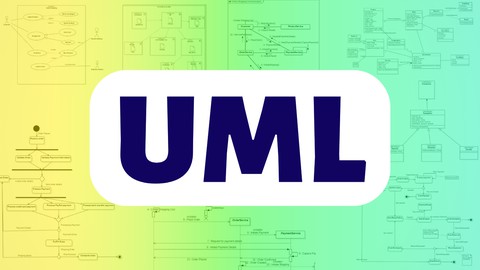
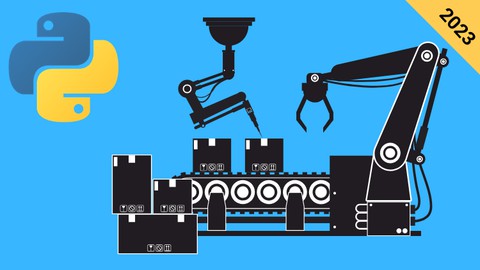

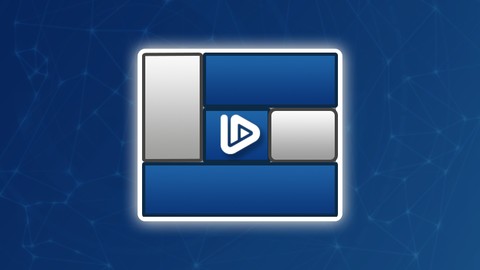
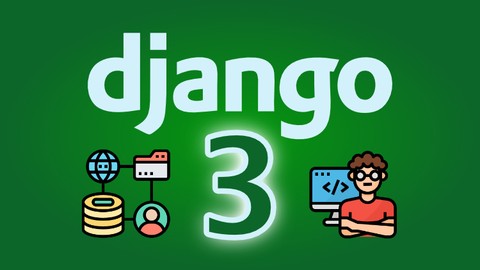


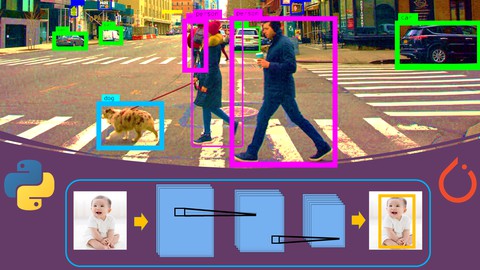




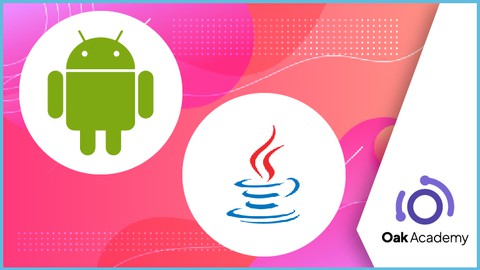

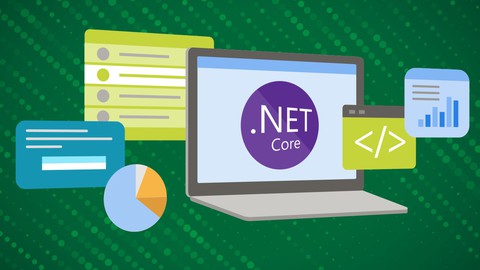
Đánh giá của học viên
Bình luận khách hàng